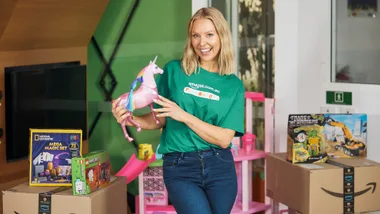Getting off to a good start
Starting pre-school should be an exciting and stimulating new experience for your child as she enters a world of shared fun, play and early learning. The key to a successful transition lies in your child’s ability to express her needs and, after an initial period of adjustment, to thrive within a group environment.
According to Meg Bender, the Quality Assurance Manager for the UK’s Preschool Learning Alliance, there are no hard and fast rules. “Most children will be very clingy when you leave them for the first time it can be difficult to judge whether this is just ‘starting nerves’ or whether your child is simply not ready,” she says. “It’s important children can talk things through and articulate their needs.”
Is your child ready?
Children who are ready to start preschool share certain common factors, according to educational and child psychologist Hannah Mortimer. “The child who is ready for preschool is the child who needs more stimulation that you can give,” she says. “These children demand your attention 100% of the time and want to help you with everything. They constantly ask questions, and may seem bored with the toys and games you can provide at home.”
“What I look for is whether the child can leave the prime carer,” explains Pat Aylott, who runs a preschool. “We invite them along to watch the group with their mother first, so we can assess how they react.”
And listening to children is vital: “Talk to them on a one-to-one basis in a quiet environment so they get used to communicating their needs with an adult,” says Pat. “They need to know they can ask for a tissue or go to the loo.”
If your child doesn’t settle
Recognising distress is vital. “If a child cries continuously, I ring her mum,” says Meg Bender. “It’s counter-productive to force a child to stay, and often three months more at home or a different nursery can make all the difference. Mums should accept that their child might not be ready, and not feel they’ve failed.”
What you can do to help
Before joining the nursery, explain to your child clearly what will happen, and that all the mums go home for a short time.
Make sure you visit and stay with her, and if possible gradually build up the number of sessions she attends.
Never slip away without telling your child you’ll be back.
If she cries regularly, discuss with staff whether it’s just ‘starting nerves’ or should be monitored as more serious.
Remember not to rush your child.





.png?resize=380%2C285)




